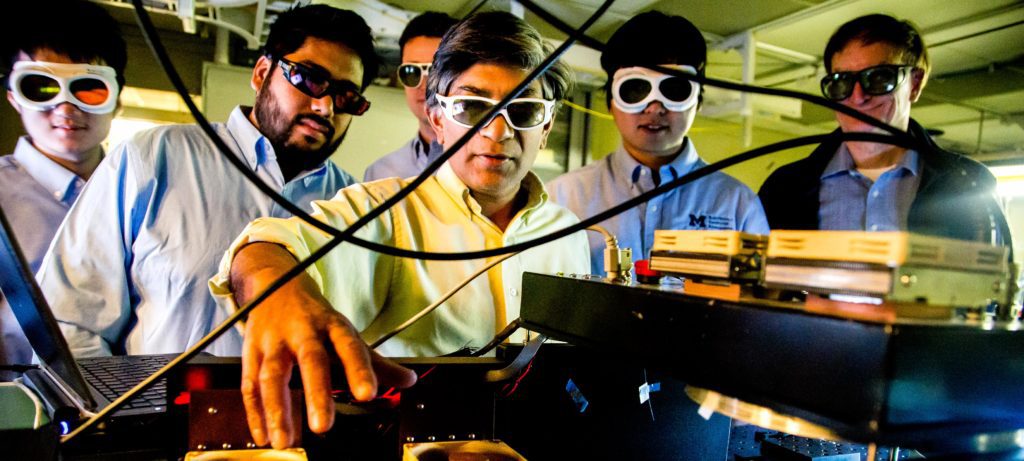Around 8 pm on Jan. 16, people across Michigan, Indiana, and Ohio witnessed a meteor exploding in Earth’s atmosphere.
The post Meteor over Michigan: How dangerous are space hazards like bolides? appeared first on Michigan Engineering News.
Around 8 pm on Jan. 16, people across Michigan, Indiana, and Ohio witnessed a meteor exploding in Earth’s atmosphere.
The post Meteor over Michigan: How dangerous are space hazards like bolides? appeared first on Michigan Engineering News.
Buildings, clothing could generate power.
The post Semiconductor breakthrough may be game-changer for organic solar cells appeared first on Michigan Engineering News.

‘You shouldn’t need a Ph.D. to design new computing systems.’
Mcity report gives new insights into automated vehicle vulnerabilities
The post Cybersecurity in self-driving cars: U-M releases threat identification tool appeared first on Michigan Engineering News.

Powered by a broadband infrared laser, the device can zero in on the ‘spectral fingerprint region’.
The researchers say they’re making an unsolvable puzzle: ‘It’s like if you’re solving a Rubik’s Cube and every time you blink, I rearrange it.’
The post Unhackable computer under development with $3.6M DARPA grant appeared first on Michigan Engineering News.
U-M researchers created a reservoir computing system that reduces training time and improves capacity of similar neural networks.
The post New quick-learning neural network powered by memristors appeared first on Michigan Engineering News.
Device generates over 100 volts from saltwater.
The post Electricity, eel-style: Soft power cells could run tomorrow’s implantables appeared first on Michigan Engineering News.
Professor Margaret Kivelson’s lecture titled, “Magnetic Structures in the Solar System” was followed by a conversation with daughter U-M Professor Valerie A. Kivelson.
The post CLASP celebrates 2017 Nelson W. Spencer Lecture appeared first on Michigan Engineering News.
U-M researchers to offer non-proprietary concrete formula free of charge.
The post Roads and bridges would last longer, save money with new concrete formula appeared first on Michigan Engineering News.